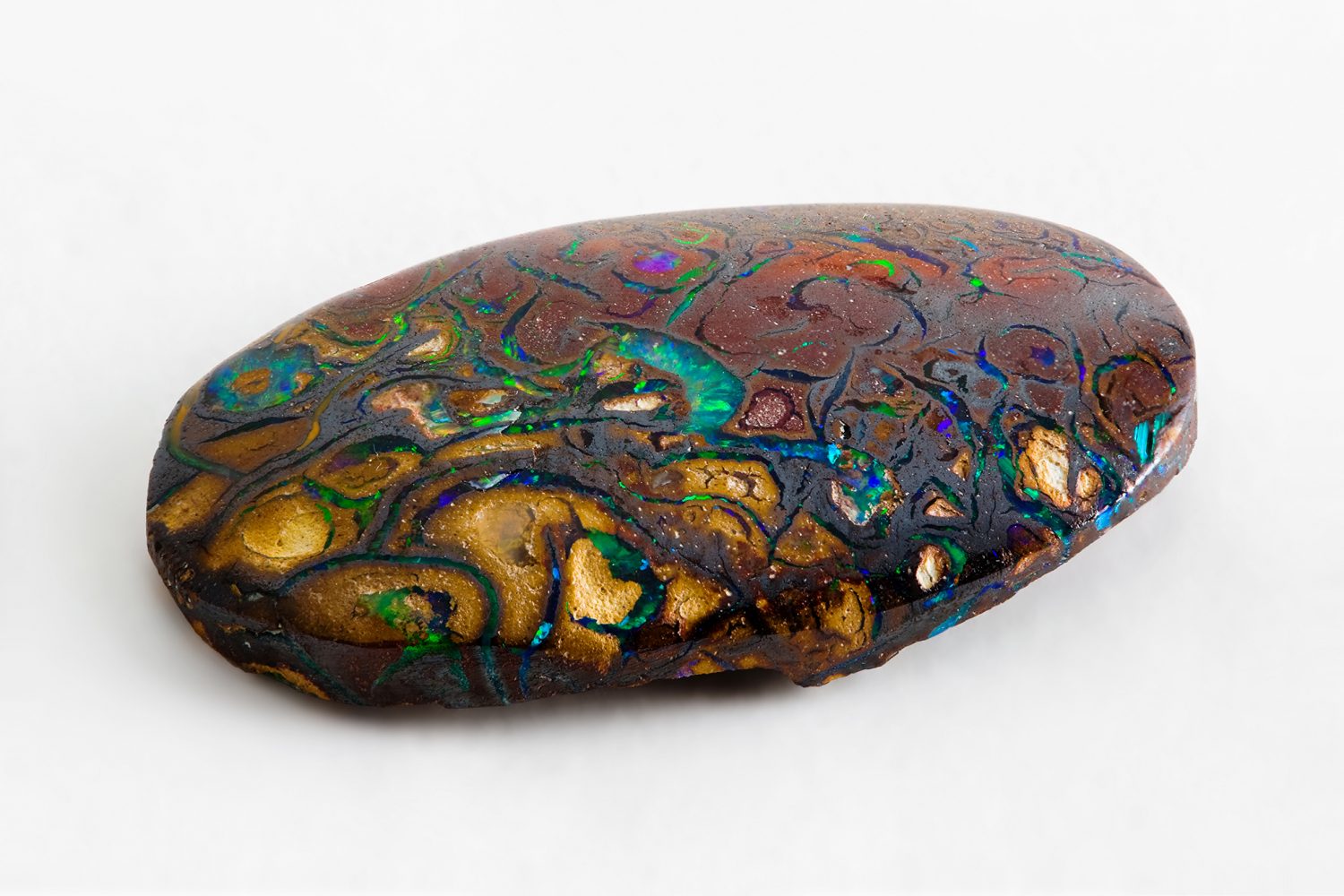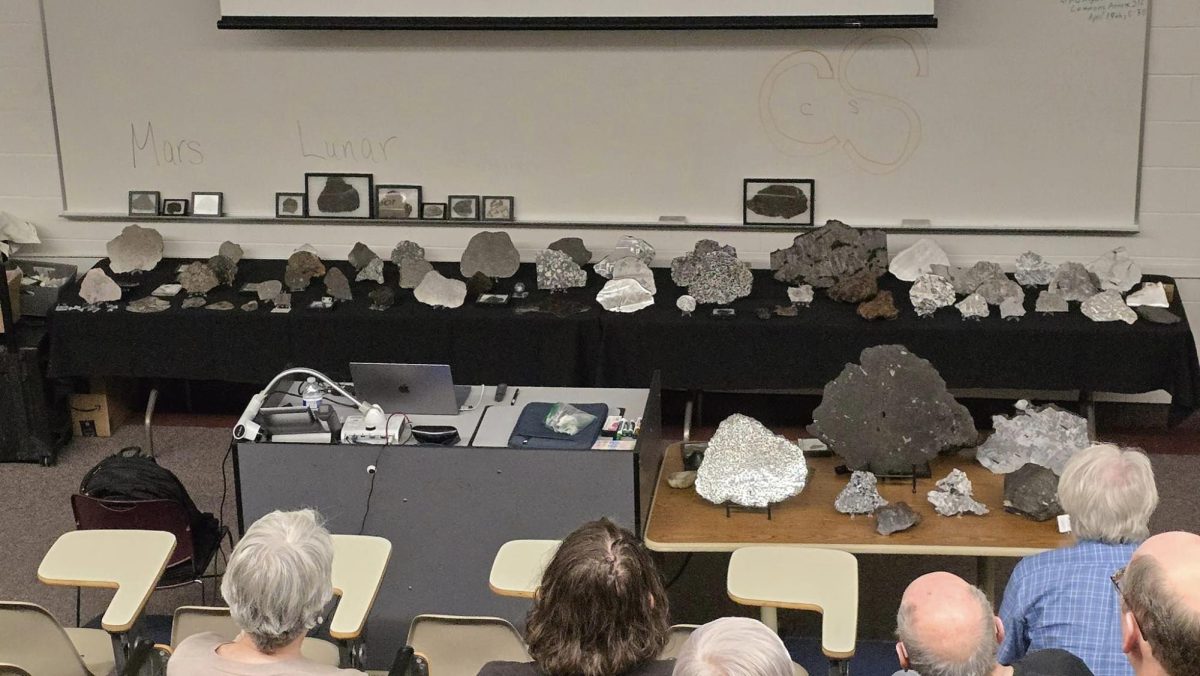When people learn that I study geology, they always ask me what my favorite rock is. Although my answer can vary, I often say opal, as it is one of the most stunning rocks ever to be found on Earth. Since opal is the birthstone of October, I thought it would be appropriate to discuss this week.
Often the terms “rocks” and “minerals” are used interchangeably to mean anything hard that is found in the ground. But in geology, the distinction between a rock and a mineral is important to understand. A mineral is a naturally occurring, inorganic solid with a set chemical composition and definite internal crystal structure. A rock is simply a consolidated mixture of minerals. With this definition, we cannot classify opal as a mineral because it lacks an internal crystal structure. (It is therefore described as amorphous). Because it otherwise resembles a mineral, geologists classify opal as a “mineraloid.” Precious opals are some of the most sought-after rocks in the entire world.
Opal is made of SiO2, which is the same compound as the mineral quartz, but opal also contains water molecules. The brilliant flashes of color displayed in opal are due to diffraction of light through the silica. Opals without these fires are known as common opal. There are many varieties of opal, which are named depending on their color or location. Sometimes opal replaces organic material in creatures when they die and are preserved, resulting in spectacularly colored fossils. Opal is a relatively sensitive gemstone, as fractures can form from too much exposure to sunlight or being dried too quickly.
You can see incredible examples of opal in the Dice Mineralogical Museum, open 1:30 to 5 p.m. every Monday, Wednesday and Friday in North Hall!






